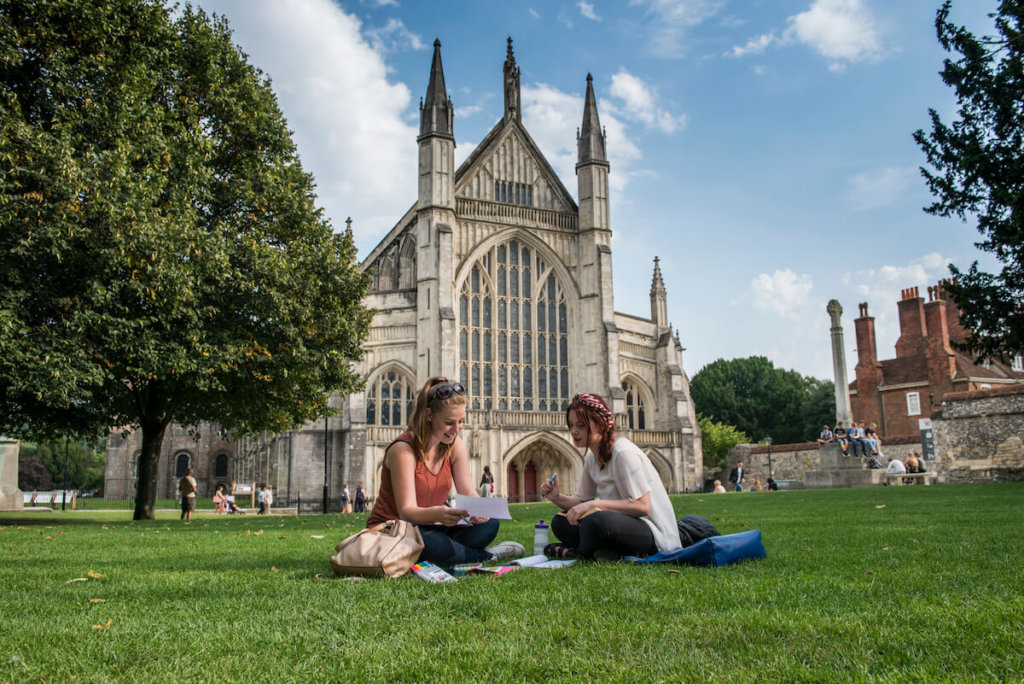In a world where speech recognition neural networks and internet-based translation engines are at our beck and call, human translators still have the upper hand.
According to Zoey Cooper, Brand and Content Director at marketing agency Wordbank, translation technology is a useful tool for certain content.
“But if you want to create a relationship with the reader, you need a human translator to make it sound natural and capture the sentiment, which often involves restructuring a sentence completely,” she says.
Employers also favour applicants with strong language skills, according to Content Manager Micheal Cheary at UK-based employment agency Reed.
“Somewhere in the region of 15 percent of all jobs posted on reed.co.uk cite language skills or a foreign tongue as being beneficial in helping secure the role,” he said.
“Estimates also suggest that learning another language increases your earning potential by at least two percent.”
With such career prospects, many undergraduate students are searching for ways to improve their cross-cultural communication and deepen their understanding of translation.
One way to achieve this is through the MA Translation and Professional Communication Skills degree at the University of Southampton.
This year-long programme connects students to the knowledge and skills needed for a career in translation or other professions that require a deep understanding of global languages, cultures and societies.

Source: University of Southampton
Once acquired, they will graduate from a Good Universities Guide Top 20 UK University with the ability to apply those skills in practical and professional contexts.
Due to the programme’s interdisciplinary nature, students also have the opportunity to work alongside renowned translation theorists and practitioners who specialise in a diverse range of fields, such as history, cultural and literary studies, as well as ethnography and anthropology.
Programmes that embrace multicultural and multilingual work environments
The University’s Faculty of Arts and Humanities has shaped this programme’s curriculum to suit modern workplace demands.
For instance, students will attain interdisciplinary skills from a range of specialist modules, including subtitling, mediation, interpretation, professional writing and editing.
In the first semester, they will be introduced to key translation theory, which they will then use in an applied translation module in semester two.
They may also opt for a work placement module which gives them the chance to apply their skills in a hands-on setting.
Furthermore, this programme has a core independent research element which is assessed through a dissertation or extended translation project.
Once completed, students will walk away from the university with evidence of exemplary independent research skills, professional communication capabilities and cultural awareness.
There is also the opportunity for students to refine their learning skills before they begin their Master’s programme with the in-house General English for Academic Purposes Summer Pre-Sessional Programmes.
These programmes help familiarise students with the teaching strategies used in higher education in the UK and helps learners with lower IELTS scores to progress onto the course. It also makes it easier for international students to settle into British life both within and beyond the academic environment.
Expand your knowledge of international cultures at a global top 100 university
The Faculty of Arts and Humanities at the University of Southampton also offers an MA in Languages and Cultures degree.
This programme is suitable for students who wish to deepen their understanding of global languages, cultures and societies with the support of world-leading scholars.
During the degree, you will use this theoretical and methodological knowledge to approach a broad range of topics, events and texts from across the Faculty’s chosen regions of specialisation.
These include modern Europe, Latin America, Africa and the Black diaspora, with options available on East and South Asia and the Jewish diaspora.

Source: University of Southampton
As a postgraduate student at Southampton, you will also become a full member of the University’s dynamic research environment.
Your learning will be enriched by events hosted by the multidisciplinary Centre for Transnational Studies, which hosts research seminars, postgraduate workshops, public lectures and many other events throughout the year.
There are events run by other research groups too, such as the Centre for Imperial and Postcolonial Studies, Centre for Global Englishes and Centre for Modern and Contemporary Writing.
In both multidisciplinary Master degrees, you will have the chance to develop critical thinking and independent learning skills for a range of careers.
And by graduating from a global top 100 university, according to the QS World University Rankings 2020, you will walk away with a top-tier, internationally-recognised qualification.
Follow the University of Southampton on Facebook, Twitter, YouTube, Instagram and LinkedIn.
Liked this? Then you’ll love…
How the arts and humanities will help shape the future
How to thrive in a globalised world with a Modern Languages degree










